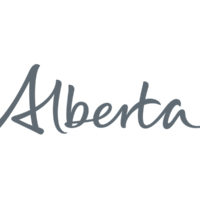
Courtesy: Government of Alberta
Albertans can help inform government actions to address racism and build a more inclusive province.
As the province’s population continues to grow and become more diverse, Alberta’s government is committed to listening and learning about the experiences of all people in Alberta, including racialized individuals, Indigenous people and others who may face systemic barriers.
“I am proud of the ongoing work being done to fight racism of all forms in our province. Through continued engagement with communities and groups that have been victims of racism, we will ensure that Alberta is a safe place for everyone to call home. We invite Albertans from all walks of life to offer feedback so that our actions can be effective and meaningful in supporting those who have faced racism or discrimination in our province.”
Muhammad Yaseen, Associate Minister of Immigration and Multiculturalism
All Albertans are encouraged to fill out an online survey before Oct. 21. They can share their perspectives on the impact racism has in this province and on future government actions to address racism.
Public engagement will build upon Alberta’s recently released Anti-Racism Action Plan. A road map for meaningful action, the plan outlines the government’s commitment to diversity, removing systemic barriers to accessing government programs and making sure Albertans have equal access to information and services. Alberta’s Anti-Racism Advisory Council has played an important role in this work.
Apply for a grant to host a local session
To provide more opportunities for Albertans to share their views, funding is available to ethnic, religious, cultural and community organizations, and First Nations and Metis Settlements to host in-person anti-racism engagement sessions. Up to 40 grants of up to $2,500 will be available and organizations have until Oct. 21 to apply.
Organizations must host sessions by Dec. 16 and will receive support materials from the government. Large and small organizations from across Alberta are encouraged to apply to give a diverse range of Albertans an opportunity to share their thoughts. More information is available on alberta.ca.
Engagement with Indigenous Peoples
Alberta’s government is committed to truth and reconciliation with Indigenous Peoples. As partners in reconciliation, we are listening to and working with Indigenous people in Alberta to determine the best ways forward to a better future.
The government will extend invitations to meet with chiefs in Treaty 6, Treaty 7 and Treaty 8, as well as leadership from Metis Settlements, the Métis Nation of Alberta and the Alberta Métis Federation to make sure Indigenous perspectives on anti-racism are included. Indigenous people are also invited to take the online survey, and First Nations and Metis Settlements and Native Friendship Centres are eligible to apply for grants to host community-led sessions.
“I grew up right beside a First Nations reserve and have seen first-hand the racism Indigenous people in Alberta experience. It has to stop. When we work together, listen and understand each other, we can make life better for everyone.”
Rick Wilson, Minister of Indigenous Relations
Other stakeholder sessions
To gather more in-depth feedback, some people and organizations will be invited to participate in additional in-person sessions with the Associate Minister of Immigration and Multiculturalism. These sessions will take place in in Edmonton, Calgary, Red Deer, Lethbridge, Medicine Hat, Fort McMurray, Grande Prairie and Brooks.
“I am pleased Alberta’s government is taking the time to listen and get the perspectives of people in Alberta related to anti-racism. Everyone’s thoughts and experiences matter, and I hope people across Alberta choose to participate, whether you are an individual taking the survey or an organization who can host a community-led discussion.”
Mohamad Awada, co-chair, Alberta Anti-Racism Advisory Council
“I am eager to see Alberta’s government move forward with anti-racism actions, and I know that engaging with Albertans is an important step to make sure these actions are meaningful and will serve those who are impacted by racism. While it can be difficult to speak up and share your thoughts about racism, I encourage everyone to get involved – your perspectives can help to build a safer, fairer and more welcoming province.”
Chinaemerem (China) Sochi Ogbonna, co-chair, Alberta Anti-Racism Advisory Council
Quick facts
- According to the most recently available census data, of the 3,978,145 people in Alberta, 21.2 per cent (845,220) are immigrants, 23 per cent (933,165) are visible minorities and 6.5 per cent (258,640) are Indigenous.
- Topics for both the in-person sessions and the online survey include what actions the government should take to address racism and how the government can continue to engage communities and Albertans on anti-racism initiatives. The online survey also includes questions on the collection of race-based data.
- Alberta’s government has begun work on a number of anti-racism initiatives, including:
- Establishing a hate crime liaison and a Hate Crimes Coordination Unit.
- Formally recognizing First Nations policing under the Police Act.
- Banning the practice of carding.
- Introducing the Alberta Security Infrastructure Program.
- Enacting the Fair Registrations Practices Act and creating the Fairness for Newcomers Office to help new Albertans get their qualifications recognized.
- Developing an inclusive communications policy for government.
Keith Hopper, Trending 55




